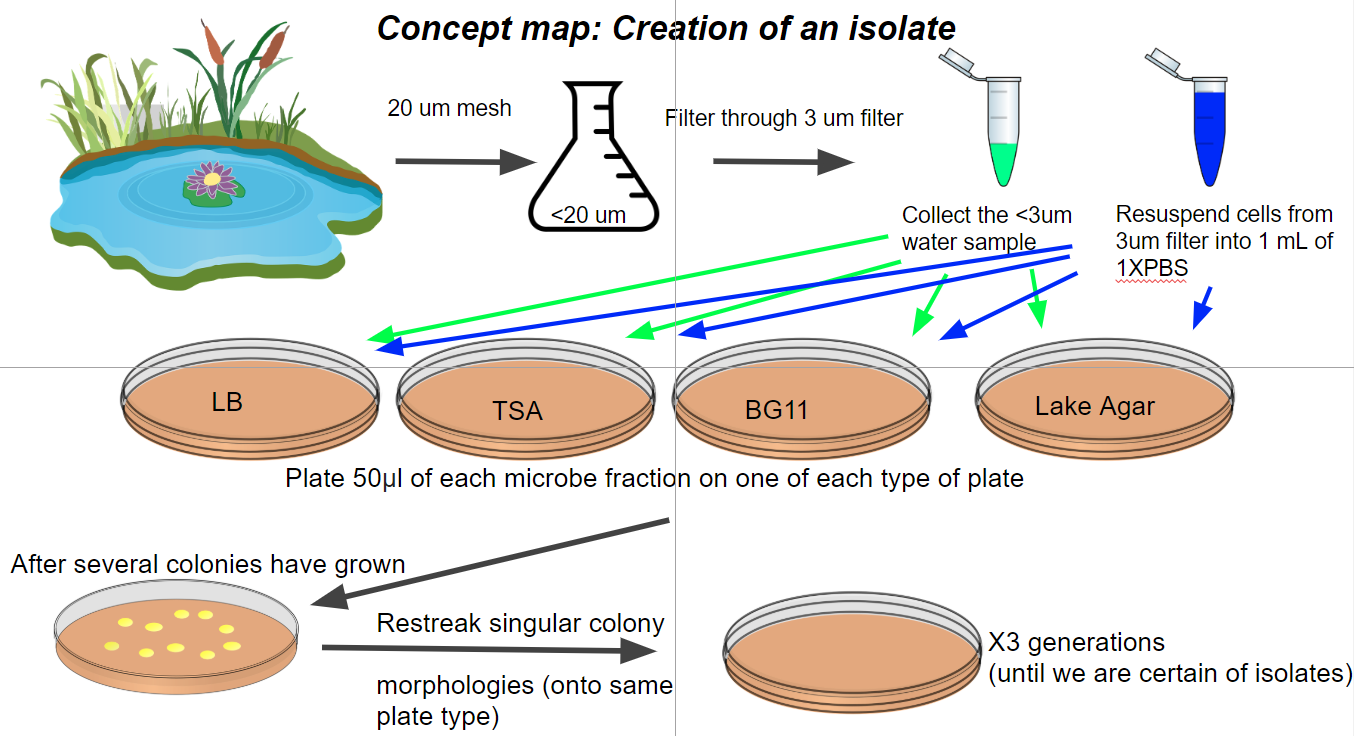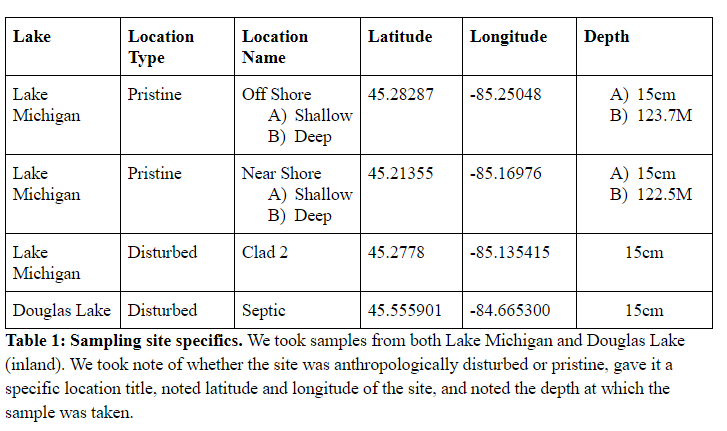Water Sampling and Plating Generations (Antimicrobial Group)
Melissa B Duhaime, Aubrey Reed, Nicole Sunshine, Renae Lyons
Abstract
Protocol developed by the Antimicrobial Group class project. The goal was to isolate microbes from freshwater lakes that produce antimicrobial compounds in order to study antibiotic production in nature and environmental reservoirs of antibiotic resistance.Protocol for class project in Microbes in the Wild: Advanced Environmental Microbiology Lab (EEB 447) course at University of Michigan Biological Station and on campus.
Before start
Steps
Collect whole water at six sites using a Van Dorn water collector for deep (~122.5-123.7 m) samples and 2 L containers for surface samples (~15 cm below the surface).
Collect the <3μm filtered water as the free-living (FL) smaller fraction.
For the particle-associated (PA) fraction, vortex tube, then partially remove filter with an edge under the closed cap
Centrifuge at 1500 RPM for 1 minute
Fully remove filter and resuspend pellet
Pipette 10μL of both PA and FL onto separate plates of 4 agar types (TSA, LB, BG11, and LAKE) and spread.
This is the parent generation.
PROPAGATE NEXT GENERATIONS:
From the lawns initially plated, by sterile loop pick up a single colony.
Select a plate of the same media.
Steak for isolation using a three phase streak pattern as shown below, sterilizing the loop in between each quadrant.

#尊敬的用户,由于网络监管政策的限制,部分内容暂时无法在本网站直接浏览。我们已经为您准备了相关原始数据和链接,感谢您的理解与支持。
https://lh6.googleusercontent.com/jorqd0OQvYlUMYBBHFqhD2DXlRFnjlATuVbeLnyqUmUNs-S4DK-vMbLENUCa-I7anMtoTsr2seKcWQQdS68OvMWxydtnlNE-RKfV-dRGKGD-S0zGBHi-RdpIEiOh-_DHmHyVme1leyI
"
-
Continue until generation 3 is obtained.
-
Use generation 3 for testing.



